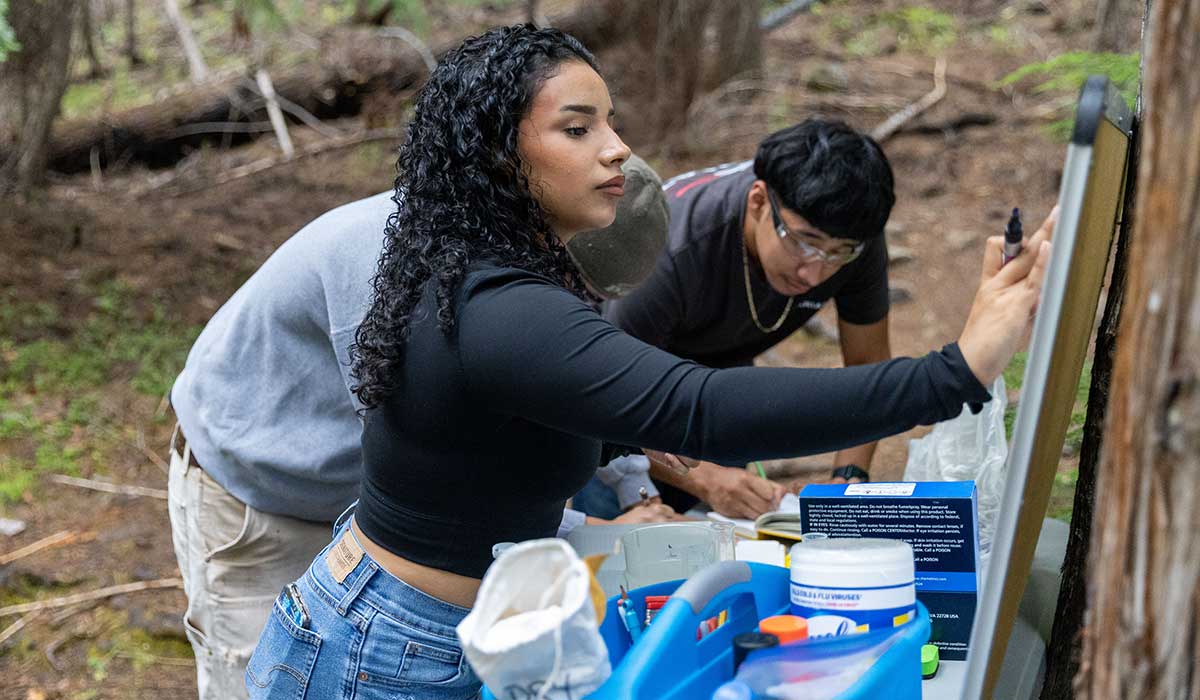This summer more than 20 Yakima Valley College STEM students will engage in community-based research projects — developing hands-on, practical skills while also studying issues of interest to local communities and industries.
The research projects provide YVC students with valuable experience both in the lab and in the field, along with the opportunity to work with a variety of community partners. More than 250 YVC students have participated in summer STEM research since 2012. Some of this year’s projects include:
- Students in one research group will collect edible morels and several varieties of poisonous false morels, which contain the toxin gyromitrin. True morels reportedly contain trace amounts of gyromitrin, and students will quantify the toxin content of both true and false morels, determine whether cooking to remove toxins is necessary and explore the possible ecological purpose of the toxin by addressing whether it has antibacterial or insecticidal properties. A second student group will measure the concentration levels of gyromitrin in the morels using reversed-phase liquid chromatography with a diode array UV detector to determine trace or small amounts of toxins in material like morels.
- Students will help William Walker, project principal investigator at the U.S. Department of Agriculture molecular genetics lab in Wapato, explore how the Colladonus genus leafhoppers transmit a plant pathogen (phytoplasma bacteria) that is devastating the cherry industry in Washington. Through the use of RNA and DNA technologies, students will look for genes that are expressed in phytoplasma-infected versus uninfected leafhoppers.
- A nutrition research project will look at the nutrient composition of foods available at the Downtown Yakima Farmers Market, their relationship to health and disease and linking the foods to the broader implications in our community. The project is focused primarily on foods available through supplemental food programs, WIC, senior meals, EBT and SNAP which are heavily used by YVC students.
- Students will analyze the chemistry and environmental DNA in naturally carbonated springs in the foothills of Mt. Rainer. Students will set up and work in field laboratories to analyze water chemistry in real time and to collect samples for DNA sequencing.
- Soil, streams and rivers are critical to life in the Yakima Valley and a small sample can reveal large amounts of hidden information. Students will use molecular techniques, such as DNA sequencing and chemical analysis, to examine samples from soil and waterways in the Yakima Valley that critical to supporting our ecosystem.
Opportunities for photos or video of YVC students working in the field and in lab settings are available through early August. Photos and video also are available upon request. To arrange interviews with YVC students and faculty engaged in summer research projects or to arrange a photo/video opportunity, please contact YVC Community Relations at communityrelations@yvcc.edu. Students will also present their research findings in a symposium held on August 13 at 3 p.m.
